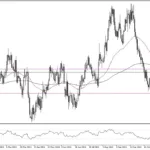What’s going on here?
Emerging Asian currencies like the Singapore dollar and Malaysian ringgit are struggling, facing their steepest declines in years due to concerns over potential delays in US interest rate cuts and uncertainty surrounding the upcoming presidential election.
What does this mean?
The US dollar has been climbing, marking its largest monthly gain in over two years as investors recalibrate expectations about the Federal Reserve’s rate policies. This strengthening dollar is putting pressure on Asian currencies, including the Indonesian rupiah. Speculative bets on a potential Donald Trump victory in the upcoming US election are adding volatility. While Trump’s victory could exert more pressure on Asian markets, analysts from Barclays suggest that a robust Chinese stimulus could mitigate the impact by bolstering currencies with strong trade and tourism ties, such as the Thai baht and South Korean won. Despite these fluctuations, Thailand’s stock market remains buoyant with an optimistic economic growth forecast.
Why should I care?
For markets: Uncertainty reigns as currencies wobble.
The US presidential race, featuring tight competition between Donald Trump and Kamala Harris, is causing tremors in global markets, particularly affecting Asian currencies. Investors are cautious about how election outcomes might alter market dynamics. Additionally, upcoming US economic releases, like the nonfarm payrolls, could further sway market sentiment and currency valuations.
The bigger picture: Geopolitical ripples and fiscal resilience.
A major Chinese stimulus could potentially counterbalance negative market impacts from potential tariff increases under a Trump administration. Such fiscal measures could drive investment into regional currencies due to enhanced economic prospects. Meanwhile, Japan’s steady interest rates and Taiwan’s proactive disaster planning, highlighted by Typhoon Kong-rey, underscore a regional focus on stability amid global uncertainties.




















